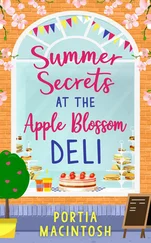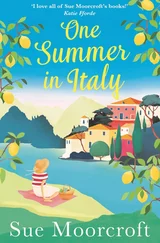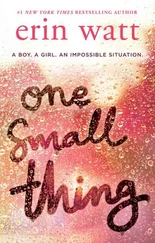‘Villa Rosso’s land extends to the east. The processing plant is on the other side of trees that you can see at the foot of the mountains. Castrovillari is situated at the base of the Monte Pollino, the Parco Nazionale. From here almost as far as you can see it’s mostly small parcels of land owned by families who have worked the soil for generations.’
‘Do they manage to make a living? It must be hard to sustain a family if this is their only income.’
Max nods, his face quite sombre.
‘It’s never been easy for them. But everyone is still suffering from what we call the black year, the harvest of 2014. Unusual weather patterns, lack of water and a proliferation of insects and bacterial blight saw the average yield cut by half. We’ve also been battling with unusually large flocks of starlings destroying the fruits, although mercifully that hasn’t affected everyone.’
‘But doesn’t that simply mean that the cost of olive oil rises?’
‘I wish it worked like that, but not all countries were affected in the same way, so some gained while we suffered. And as for any price increases, very little filters down to the poor farmers. That’s why we’re trying so hard to grow this artisan crafts cooperative. The local market is small, as the vast majority of the workers here lead very simple lives. You can see for yourself how rustic their farm dwellings are. When they’re not working the old women are found gossiping in doorways, complaining about the menfolk. It falls on deaf ears and the old men relax nearby in the shade, playing cards.’ He turns to look at me, giving a wry smile. ‘But the daily fight against poverty and the need to feed their families is a worry that never goes away. The wealthier families, like the Ormannis, employ as many local people as they can but they, too, are affected by a bad harvest and the vagaries of nature. That’s why diversification is essential at every level, although olive production will always be at the heart and soul of the business. But the real problem is the exodus of the younger generation to the cities, where they can usually earn a lot more money and enjoy all the benefits of modern living. As any farmer will tell you, working the land is, at times, heart-breaking.’
Max looks resigned, but the deep lines between his eyebrows are furrowed. The tension he feels for a situation that must seem like an endless battle against a nameless enemy, is etched on his face. His profile shows a firm jaw line, rigidly set. I wonder what is going through his mind at this precise moment.
‘And here we are.’
The track we’re on is bumpy and for the last hundred yards, or so, the car has been literally crawling along.
Max parks up in front of a series of large sheds, similar to outbuildings seen on farms in the UK. But whereas we’d use them for cattle feed and machinery, I realise that for the owner this is a huge investment in a business venture that’s a considerable gamble. It isn’t just the locals who carry a heaven burden on their shoulders. Max, as their representative, knows exactly what these proud people stand to lose.
There’s no ceremony – in fact Max escorts me inside the first shed as if it were in the grounds of Villa Rosso. He waves to two men wheeling large wooden trolleys with a collection of clay pots ready for the kiln. This appears to be a holding area and along the far wall five women of varying ages are busy packing boxes. From a young girl of indeterminate age, to a grandmother who must be in her nineties, they chatter as they work. The elderly woman looks up and smiles at Max, her toothless grin a happy one and the other women giggle, shyly.
Max steers me through a doorway into another shed, where seven or eight people are hand-painting designs onto a wide range of different pots.
We’re attracting some curious glances, but no one approaches and I simply follow in Max’s footsteps until he opens another door and ushers me inside. I suppose this is more like an office, although it’s still only a wooden structure with a tin roof. But the floor-to-ceiling shelves hold an array of colourful and well-crafted ceramics that would grace any European showroom.
‘I wasn’t expecting such a departure from the old traditional styles,’ I admit. ‘Max, these wall tiles are amazing and the table lamps are exactly what we’re looking for!’
For the first time since we set off, Max’s forehead relaxes a little and he nods in appreciation.
‘It’s a big step for us to depart from the traditional designs people have come to associate with Italian majolica. We are focusing on a different clientele and market, hoping to give interior designers the quality and statement pieces they are looking for, at a very competitive price.’
‘Can I take some photos to send to Olivia?’
‘Of course. Take your time. I’ll go and do the rounds as they’re all holding their breath, wondering what the English lady will think.’
The pressure isn’t just one-sided, but I suspect they have nothing to worry about. This is exactly what Livvie was hoping to find. I snap away quite happily until Max returns, stealing a glance at his watch.
‘We should go shortly, as I want to show you around our next stop before we head back for lunch.’
‘Can I purchase a few things to take back as presents?’
‘Of course.’ I follow Max through to the packing area and select a couple of items for the girls and something for Dawn. At first the elderly Italian woman refuses to take the notes I offer, but I insist and she nods her head in gratitude.
I make an effort to smile at everyone I pass who looks our way, as we retrace our steps.
‘The tension is palpable. Can one order make that much of a difference?’
‘More than you probably realise. This is a fairly new venture still and we have a long way to go to get a full order book. A deal with your company could kick-start this initiative and give us the cash injection we need to expand. A lot is riding on your visit and there’s no point in pretending otherwise.’
‘Can’t you use a middleman? Someone with contacts already in place?’
Max shakes his head.
‘Not all of the operations are as large, or advanced, as this one. In order to offer people like Olivia the deal they are looking for we need to keep non-production costs to the minimum. It’s one less link in the chain taking a cut out of the profits and this is diversity for survival of the whole. Besides, I seriously doubt we’d consistently be able to meet the sort of production levels required to fill global orders, because of the investment levels required. So we are going for the niche, interior design market. If you want two hundred table lamps, that’s not a problem. But if you wanted five thousand—’
‘Ah, now I understand. Where are we going next?’
I try to sound upbeat, despite feeling the pressure beginning to mount.
‘Our biggest producer of textiles. I think you’ll be impressed by the set-up. It’s actually attached to one of the local churches.’
Max opens the car door as I slide into the seat. A young woman calls out to him, holding something up and Max strides across, placing his hand on her shoulder and taking the item with his other hand.
When he returns he hands me a chilled bottle. ‘Here, this is for you.’
‘What is Gassossa Neri, exactly?’ I ask, wondering if it’s some sort of locally distilled alcohol that will take off the top of my head.
‘It’s good to drink, just carbonated sugar water, really. It’s old school, hard to find these days, so treasured amongst the older people as it was the soft drink of their childhood. Notice that I wasn’t offered one.’ He drops the corners of his mouth in an exaggerated fashion.
‘What a nice gesture.’
Читать дальше












